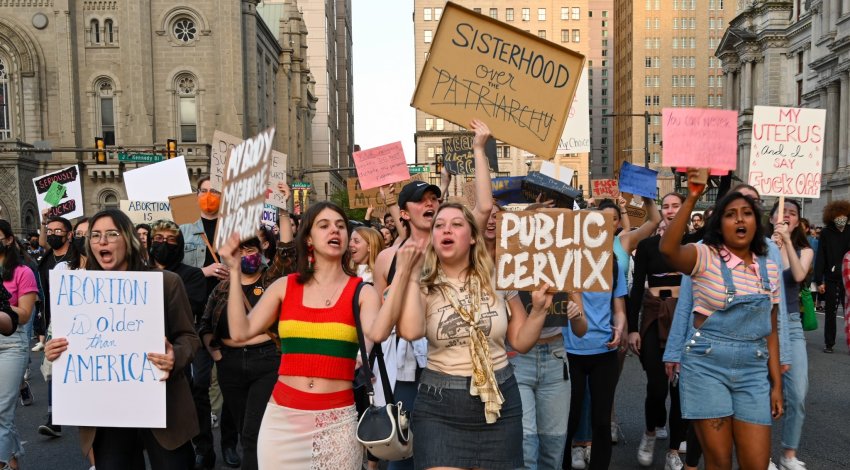
The “leak” of the draft decision by Supreme Court Justice Samuel Alito to overturn Roe vs Wade, the 1973 ruling legalising women’s right to abortion, signals that the Court’s reactionary majority will probably do so in its final decision on the Mississippi anti-abortion law before it.
News site Politico obtained a draft majority opinion, written by Alito, in which the majority sided with the state of Mississippi in the Dobbs vs Jackson Women’s Health Organization case. The case arose from a 2018 state law banning abortions after 15 weeks.
Previous Court decisions have upheld state regulations — adopted with bipartisan support — which have chipped away at the right to abortion in the decades since 1973. In a 5–4 decision in September, the Court upheld a Texas law banning abortions after six weeks, without hearing arguments or opinions of law.
Nevertheless, most people who do not follow the Court’s rulings in detail were shocked by Alito’s draft decision that made clear the Court wants to overturn Roe vs Wade, striking down what has been a constitutional right for half a century.
The Republican Party, shaped by former president Donald Trump, is now the reactionary spearhead of the drive against all the gains of the social movements of the 1960s. Republican politicians in Congress, with few exceptions, have all expressed support for Alito’s draft.
The reaction to the leak was immediate, with mass demonstrations held in major cities defending the right to abortion.
The right to control reproduction is fundamental to the struggle for women’s equality. If this decision prevails, it will be a blow to the unfinished struggle for full liberation in this patriarchal capitalist society.
Roe vs Wade did not affirm a woman’s right to control her own body, but instead restricted its argument to a woman’s right to privacy. Since then, the right to privacy has been seen as a constitutional right, and cited in the right for same sex couples to marry. It also underlines the right to contraception.
Alito’s draft decision expressly denies any right to privacy.
DemocracyNow! reported that Pramila Jayapal, a “progressive” Democratic congressperson, told a Seattle protest: “There is a straight line from upending abortion rights to getting rid of access to contraception, to banning gay marriage … our low-income communities, our Black and Brown communities, our LGBTQ communities will be the ones who pay the steepest price, because abortion won’t go away, but safe and legal abortion will, endangering millions of people.”
Thirteen Republican-controlled states have already passed so-called “stand-by laws”, which will immediately outlaw abortion if Roe vs Wade is overturned. If that happens, it is likely that number will grow to 26 states.
As Jayapal said, there will still be abortions in those states — illegal and unsafe ones — as there were before the 1973 ruling. There will be deaths and the jailing of women and doctors.
Those who are well-off will fly to states where abortion is still legal (or pay their private doctors big bucks), but lower-income working people, especially Black and Brown, will not be able to take time off work or afford to travel.
In any case, even if Roe vs Wade is not directly overturned, the Court has made it clear that abortion will be de facto outlawed in these 26 states, and there will be a state-by-state hodgepodge of laws in the remaining 24.
Already, the anti-abortion movement is gearing up to fight to impose more restrictions on abortion in the remaining states. These forces are also setting their sights on the Republican Party taking back control of Congress and outlawing abortion nationwide — starting with November’s mid-term elections and continuing until the 2024 presidential election.
Democrats are seeking to divert the movement opposing the attack on abortion rights into voting for them in November and 2024.
However, the only effective way to fight back is to continue mass actions and make them more powerful. That’s how a very reluctant Supreme Court in 1973 was forced to adopt Roe vs Wade — by a mass women’s liberation movement that was part of a larger mass radicalisation in the streets.